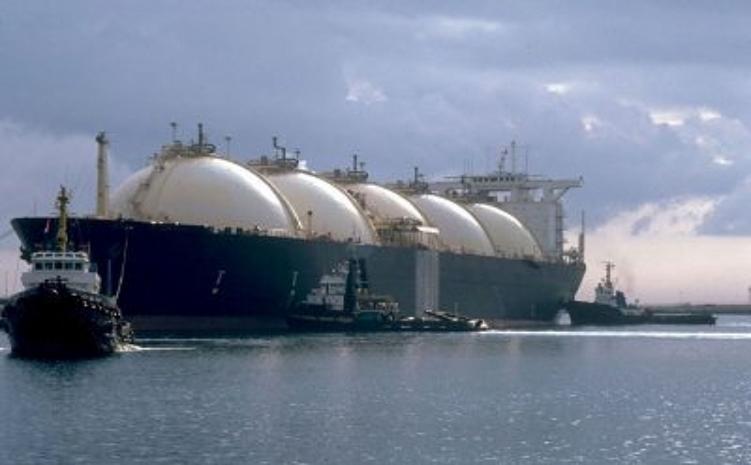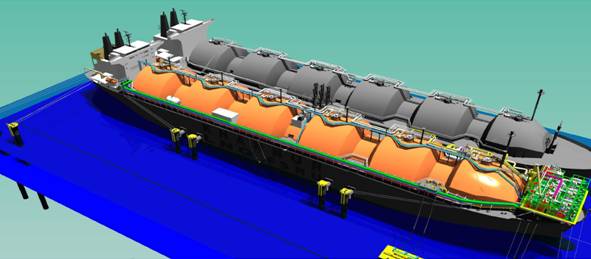
THE VOICE OF INTERNATIONAL LITHUANIA
|
VilNews has its own Google archive! Type a word in the above search box to find any article.
You can also follow us on Facebook. We have two different pages. Click to open and join.
|
WITH BOTH OIL AND LNG IN KLAIPĖDA:
Environmental risks?

The Kiaules Nugara (Pig’s back) island in the southern part of the Klaipeda port, at the border between the port and the Curonian Lagoon (to the left in the above illustration) is the most likely place to build Lithuania’s planned LNG terminal. This means that it will regularly sail large LNG tankers through the narrow strait between Klaipeda city and Neringa (which is now designated as one of the country’s national parks). How risky can it be to get a gas terminal and such a heavy sea traffic close to the big city that Klaipeda after all is? What about the explosion and fire risk? What about emissions and other forms of pollution? Is the water, beaches and fisheries in the Curonian Lagoon at risk? May Neringa and Klaipeda city be at risk?

There are currently 235 liquefied natural gas (LNG) tankers in operation worldwide. New LNG tankers have an average capacity of three billion cubic feet, costing approximately EUR 180 million each. LNG tankers differ from traditional oil tankers in that their cargo, liquefied natural gas, must be cooled to extremely low temperatures (-160°C) and has slightly different characteristics than oil (including a higher propensity to burn). LNG tankers might be dangerous for environments and communities claims a new movie and web page: http://timrileylaw.com/LNG_TANKERS.htm
Principle for the planned LNG terminal in Klaipeda


An FSRU (floating storage and re-gasification unit) will be moored to a pier (jetty) and every
arriving LNG carrier will be moored to the FSRU, side by side.

Klaipeda port area is now very idyllic. Klaipedos Nafta's oil tanks (left in above photo) have certainly somehow changed this picture over the latest years, but that will be trifles in comparison to the situation that will be applicable when the LNG terminal at the inner end of the strait is completed in 2014. Let's just hope that all possible precautions are taken, and that neither LNG, oil, nor the tankers carrying the gas and oil will have negative or risky effects for Klaipeda, the sea or the beautiful, surrounding landscapes.
Aage Myhre, Editor-in-Chief
- Bookmark :
- Digg
- del.icio.us
- Stumbleupon
- Redit it
VilNews e-magazine is published in Vilnius, Lithuania. Editor-in-Chief: Mr. Aage Myhre. Inquires to the editors: editor@VilNews.com.
Code of Ethics: See Section 2 – about VilNews. VilNews is not responsible for content on external links/web pages.
HOW TO ADVERTISE IN VILNEWS.
All content is copyrighted © 2011. UAB ‘VilNews’.

 Click on the buttons to open and read each of VilNews' 18 sub-sections
Click on the buttons to open and read each of VilNews' 18 sub-sections 



[…] Click here to read the article […]
[…] WITH BOTH OIL AND LNG IN KLAIPĖDA: […]